Chapter 27: The Muslim Wars
26 April 1593, Castle St. Maso, Rome
Drusus Germanicus, the Archduke of Egypt and the new Chancellor of the Empire, had often criticized the government for not making decisions, sometimes vehemently so, in his younger days as a Senator. He now realized how wrong he was. A large Empire like Tuscany's was incredibly difficult to rule. As a good bureaucrat and civil servant, Chancellor Germanicus had to make the less important decisions so that his Emperor would not be bothered. There certainly were a lot of them too; whenever a provincial governor wanted funds for a building project, they first asked their Duke, who then submitted all of his lands' requests in a single document, typically every three months. All projects taking longer than a year to complete required Leo III's approval, but few did, and so he had to evaluate the merits of most of them.
Sometimes his duties were more pleasant. For example, he was asked to deliver the speech proclaiming the restoration of Jerusalem to Christian hands. This was so popular that even the Pope had sent emissaries and words of congratulations. Drusus was no fool, and knew that many European courts were terrified and outraged by the exorbitant peace forced on Castille by the Empire. The Chancellor welcomed the distraction.
He'd also been gratified to hear that the rebellion in Aleppo was put down by General -- no, Duke -- Ulivelli. Interestingly enough, some of the remaining Castillian soldiers actually joined in the battles. As much as the pain of defeat made Castille hate Tuscany, they were still brother Christians, if a bit misguided. No sovereign wanted to encourage uprisings.
When he made his report to the Emperor, he knew Leo III would be pleased, as well he should. He'd won a great victory, and only a fool would have expected no resistance. Whatever the Emperor's faults, he was no fool.
-------------------------------------------------------------------------------------------------
9 November 1593, Constantinople
Pietro Leopoldo Farnese, the Prince of the Empire of Tuscany, had been living in Constantinople for three years now. He'd learned all he could from his Regent, Julius Tullius Cicero, and now it was his turn to rule. Constantinople was the Empire's second city, so to speak, after Rome. He knew he was being entrusted with a great honor.
The young Prince watched the parade of legions marching through his city in his honor. Imperceptibly, he shook his head. War was not the way to win friends or gain land. His father delighted in military expeditions. Pietro found them boring. What he most loved was history, and in that he excelled. He'd learned many languages and traveled as much as he could in his youth, the better to learn of foreign cultures. Julius had impressed upon him the importance of administration as well, and so he'd studied that too, but he expected to rely on his Marshal and Generals to serve military policy.
Pietro realized something his father did not. The rest of the world was mad at Tuscany. With no real justification, Leo III had taken a fellow monarch's land, and a Christian monarch at that. Expanding at the expense of heathens was expected and encouraged, but sovereigns were supposed to be gentlemen. He'd discussed this with Drusus Germanicus, when the Chancellor chanced to travel east, which was infrequent.
Today, however, as was custom, everybody who was anybody was in Constantinople. His father, of course, but all the Dukes and Archdukes, as well as the Imperial Council. Only Marshal van Dijk remained in Rome, which was sensible, as the need for Imperial security never rested. Pietro knew most of them, and liked almost all of them. He didn't like Archuke Ludovisi much -- he was still too much a General, very gruff and abrasive -- but did respect him.
While Pietro ruminated about his father and the nobles of his future Empire, his Chancellor was talking with Drusus Germanicus. Drusus and Julius were not exactly friends; they hadn't really spoken enough to be that. But they were closer than normal colleagues, perhaps because both had assisted the Emperor. They discussed Adana and Trebizond -- properly part of Archduke Ludovisi's lands -- becoming core lands of the Empire. Rumors abounded that a new Legion was being raised, and that Leo III planned to call it "God's" Legion. Practically speaking, the Legio XII 'Deus.' Neither had ever served in the military, but both respected the armies of the Empire.
After all, anybody that dared to act on Tuscany's spoiled reputation had about 120,000 reasons not to. Would that be enough? Both men hoped it would, but feared it wouldn't.
--------------------------------------------------------------------------------------------------
1 February 1594, office of the Foreign Minister, Rome
Giovanni Barberini was feeling a little resentful. He and his father had served the Empire for years, and had never even been considered for a Duchy. Sure, Barberini was a Count, but everybody knew that the only nobles that really mattered were the Archdukes, Dukes, and of course the Imperial family. Now he had reason to be even more insulted.
He'd originally been pleased when Fernando Bartolini, the Commandant of the Germanicus Academy of the Imperial Legions, retired. Bartolini was always beaming about his son, the new Duke of Carthage and victorious General. To be honest, it made Giovanni sick. The Commandant of the Academy had a prestigious military position, and nobody knew who would take over. Marshal van Dijk wanted to wait until a full time applicant could be found. The interim Commandant was Matteo Pieralini, the brilliant military theoretician.
That was until he'd heard who was replacing Bartolini. A "Diplomat".
Gian Carlo Buti was a member of an old family in the Empire. His great-grandfather, Valeri, had been a Count under Julius I Magnus. Gian had gotten the assignment because he'd been one of the favored tutors of young Prince Pietro. Barberini grudgingly admitted that Buti was a bright fellow and a great negotiator, but that wasn't the point. Giovanni remembered how he'd become Foreign Minister; he was the deputy of the man before him. At least that indignity wasn't forced on him. Buti's assignment was to travel Europe and repair the damage done to Tuscany's reputation. It would take years, so Barberini knew his position was temporarily safe.
What had gone him thinking about Buti? Barberini wondered. He checked his appointment calendar, and sure enough, Buti was due to report in on his progress. Buti had been in London for the last two months. He'd been appointed during Prince Pietro's birthday party, so nobody had announced the appointment then. Almost on cue, a guard announced the Diplomat's arrival. Barberini was stunned to see his employee badly disheveled.
"By the grace of God, Gian, what happened?"
"Foreign Minister, I have news from Great Britain. A rebellion has brought down their monarchy; many of her constituent parts are now independent nations. I was unfortunate enough to be caught in London during the transition of power."
"I must bring this to the Emperor immediately, he may even wish to call a Council of War. Thank you, Gian. You should see a doctor, man, you look terrible."
"Indeed, Minister." The young Diplomat collapsed on the floor. Giovanni felt a lot better about his position as he instructed a guard to alert a doctor. He then rushed to see the Emperor as quickly as possible, pausing only to collect Chancellor Germanicus and Marshal van Dijk.
--------------------------------------------------------------------------------------------------
1 May 1595, Castle St. Maso, Rome
In the end, war with Great Britain never happened. Leo III had originally been for it -- restoring Britannia to a New Roman Empire was an extremely attractive proposition. The debate had been very heated. Marshal van Dijk argued that it was a unique opportunity that might never come again. Foreign Minister Barberini insisted that he had no real way of creating a
casus belli, and warned that such a war would be unpopular and could cause untold chaos in the streets of Rome. Chancellor Germanicus was much more blunt -- he threatened to resign if a war was declared against the British.
At the time, the Emperor had been upset, but now he realized that it simply wasn't worth the hassle. He privately was actually relieved; he'd always wondered what might have happened had he pursued an alliance with the British instead of Burgundy, and now he knew he'd bet on the right horse, so to speak. He'd sent a very generic note of consolation to the King of what remained of Great Britain, a monarch-to-monarch affair. That was it, though, and did not explicitly promise any support. When General Ludovisi died, leaving the Archduchy to his younger brother, he was much more relieved. Ludovisi was his best commander, and without him, he didn't want to risk a major military adventure.
That didn't mean he had nothing to celebrate. In an attempt to gain the throne of Corsica, his son Pietro had married the daughter of their King. There was no clear claimant to the Corsican throne, and a Personal Union might result. He was proud of his son, in any event. Pietro had often stated the power of diplomacy in gaining land for the Empire, and had done just that with Byzantium.
The Emperor was pleased; now Byzantium was integrated with the rest of the Empire of Tuscany. He wished things were that easy with Milan, but the only way he could gain that crown without a possible war with Austria was through inheritance, so he patiently waited. Maybe his son would be the one to inherit Milan? That would be a fine thing, the Emperor bargained. To keep his Chancellor from becoming angry, he authorized a dramatic increase in funds to restore the slight loss of stability. The new Greek lands were made part of the Principality of Constantinople.
Another of Pietro's endeavors was paying off too. It was his son that convinced him to hire the Diplomat Gian Carlo Buti, and now young Buti was Foreign Minister. Nobody saw Barberini's heart attack coming. Some wags said he died of a broken heart, since he never got the Duchy his family deserved. The Emperor thought that was tripe, but couldn't say so in public. Buti's promotion was temporary, though. The Emperor needed Gian Carlo traveling Europe, but had no real replacement for Barberini in mind. Despite Giovanni's fears, Buti wasn't ever intended to be a foreign minister.
To replace Barberini on the Imperial Council, Leo III hired a new Commandant.
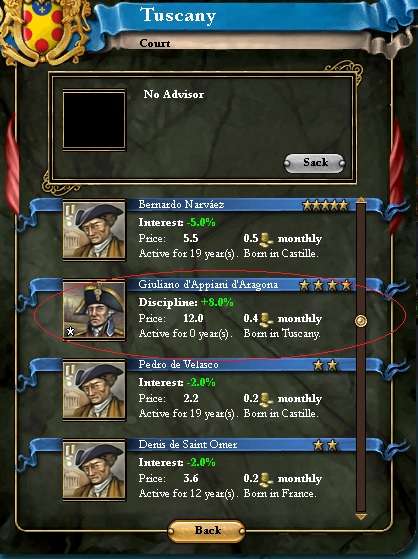
Giuliano d'Appiani d'Aragona was of mixed heritage, as his name suggested. His father was Italian, but a poor one. In fact, he'd had no real home -- d'Appiani was his last name only because he often walked up and down the Appian Way, looking for work or food. His mother, however, was an Aragonese noble, and that had brought some respectability to his family. She'd met his father during a trip to Rome, and supposedly his father was so handsome she'd agreed to marry him on the spot. Giuliano had actually grown up in Aragon, and when his father died, he had no plans to return to the Empire. That was until the war with Castille. His mother had gently encouraged him to join the legions during the War of Retribution to help check Aragon's rival, Castille. Thanks to his mother's wealth, he'd been a Captain in the Aragonese army, and he'd been given the same rank in the Tuscany army. He was promoted to Commander of the Legio II 'Sicilia' by General Bartolini after he'd done some fine work at the Battle of Madrid. Bartolini recommended his Commander to the Marshal, and so Giuliano was given the position.
Giuliano's teaching style was a little brusque for some of the recruits, but they quickly adapted. The Emperor had a new teacher for his legions -- now it just remained to ask what would happen to them.
He would soon find out.
--------------------------------------------------------------------------------------------------
13 June 1596, the office of the Foreign Minister
Gian Carlo Buti had been Foreign Minister for over a year, and the truth was he didn't like it. When the Emperor had hired him, he was promised travel, and while he still traveled some, for the most part he had to stay in Rome. Rome was a lovely city -- his patriotism demanded he call it the greatest in the world -- but it was only one city. The groundwork he'd laid throughout Europe was having a positive effect, and gradually the rest of the world began to "forgive" Tuscany, so to speak. Still, he thought he could do better if he were ever allowed to leave the Imperial capital.
France declared war on Morocco a few months ago, and that was distantly troubling to the Empire. Leo III considered North Africa Tuscan territory, and had to be restrained from sending a nasty note to the French. At home, even more lands were recognized as ancestral Tuscan possessions: Sinope was the very latest. In the weekly briefings he and his counterparts had, he'd learned that a new Fine Arts Academy was going to be built in Bithynia and that there were wool and copper shortages in the army. Gian grinned. The Marshal was never satisfied with the tools he was given, although he sung the praises of Commandant Spaniard -- the unofficial nickname of Giuliano d'Appiani d'Aragona.
Still, at least he got to read different languages, one of his true passions, and at the same time curried favor from the Emperor by requiring fewer translators. This one, from the Muscovites, requested assistance in a war against Manchu.
Gian paused, then checked the standing order book. He'd remembered reading something like this a while ago. As he read Imperial Proclamation on Foreign Affairs #12, he nodded quietly to himself:
If you receive a Call to Arms from an ally that does not involve the direct intervention of the Legions or the Fleet, the Foreign Minister has the authority to agree to the request without consulting with the Emperor first. However, if troops or ships are later required, the Emperor must approve the orders. [1]
Gian grabbed the nearest Imperial seal and stamped the request. He had one of his aides use the newfangled printing press to make a copy for the Emperor and the Tsar of Muscovy. He had to admit, it did save on personnel, but he couldn't get the damned thing to work. He didn't even mention it to the Emperor when he saw him later that afternoon.
The Foreign Minister had set events in motion with untold consequences for the Empire.
--------------------------------------------------------------------------------------------------
9 August 1596, Damascus, Syria
Gian Carlo Buti laughed quietly to himself; he laughed quietly because nobody else would have gotten the joke. His tenure as Foreign Minister had to have been one of the shortest in Imperial history. He was a simple Diplomat again, traveling the world on official business, doing the job he initially wanted to. He supposed, in a very oblique way, he had Manchu to thank for it.
Two weeks after the Empire of Tuscany joined Muscovy in her war, Syria declared war on Tuscany.
It was one of the worst decisions an independent nation had ever made; the sort that ensured the given country wouldn't be independent for very long. It still baffled the Diplomat. Maybe the ruler of Syria only saw that Tuscany was at war with Manchu and assumed Tuscany couldn't possibly win. [2] In any event, why they were at war didn't matter. By unhappy coincidence, the only senior governmental official free to travel to Syria with knowledge of the local language was Matteo Pierallini, the army theorist and former Commandant. He met with Duke Ulivelli in Jerusalem, who didn't understand Pierallini's role; he thought he was there to take command of the legion. A few days later, Pierallini found himself sieging Damascus. He was the first man killed during the assault.
Emperor Leo III knew the war would be quick, and so made a quick decision. He hired a new Foreign Minister; an Ambassador named Ippolito Tonelli. Tonelli was the direct descendant of an Imperial General, albeit a long since departed one. He was a classmate of Buti's at the University of Rome. Unlike Buti, however, Tonelli had no gift for foreign languages; his Ambassadorial post was to Milan, which had been little more than a sinecure (and a bad joke) for years. However, Tonelli had one rare gift -- the specialist in foreign affairs who didn't like to travel. He was a genius at crafting documents. Buti was restored to his old job, where he could best support the Emperor, and traveled to Syria with clearly written instructions.
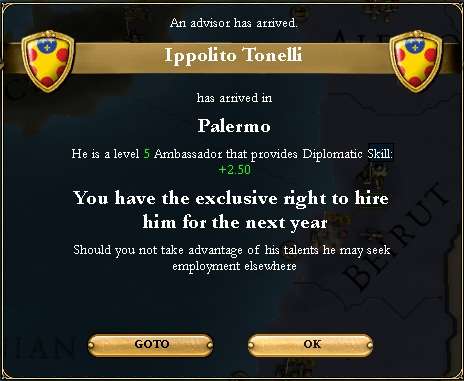
His mandate to the Syrians was undeniably simple: annexation. This had been a little unpopular actually. Annexation without a legitimate claim was a dangerous decision to make, since it entailed an even more dark picture of Tuscany around the world. To avoid an ugly argument, Buti was not to reveal the treaty to anybody but the Emperor, who would sign it without consulting the Imperial Council. It wasn't illegal, or even improper, but it was still not the traditional way to do things. Nonetheless, it was done.
The Emperor added Damascus to the Duchy of Jerusalem. He still couldn't believe such a weak country had essentially thrown away its sovereignty for no good reason.
There were more to come.
--------------------------------------------------------------------------------------------------
10 May 1597, the Chancellor's office, Rome
Drusus Germanicus was becoming unpopular, but he didn't care. The fact was that these new conquests weren't repairing the image of the Empire and causing domestic problems. The most recent "victim" was Ak Koyunlu.
Since Ak Koyunlu had declared a Jihad, at least that meant that the international black mark wouldn't be so bad. It made Germanicus uncomfortable, though. People in Yazgod were beginning to grumble about the Emperor's so-called "warmongering," when all they wanted was peace. The fact that many of the residents of the province were Turkish, as were the people of Ak Koyunlu, didn't help matters. He'd ordered the Legio VIII 'Roma' east from Bithynia, with the approval of the Archduke of Asia Minor, Bartolomeo Ludovisi, who'd taken over from his brother after his passing.
Thankfully, the Empire had since restabilized; the Emperor's new obsession was the Fleet, and he'd diverted the funds once earmarked for stability to naval technology. The army got a boost too; a regulated system of Battlefield Commissions that could help fix the chronic officer shortages.
Ak Koyunlu capitulated, as predicted. It did make the map of the Empire prettier, but it delayed meaningful large-scale conquests. Every act of infamy meant a little more work to erase the stain.
His biggest fear was what might happen if a tougher opponent declared war; would the rest of Europe follow suit. The best strategy, in the Chancellor's eyes, was to stay quiet. He prayed that the rest of the world would let the Empire do just that.
--------------------------------------------------------------------------------------------------
8 January 1598, Alexandria, Egypt
Gian Carlo Buti was exhausted. He supposed he shouldn't complain, but the fact was that he was tired of traveling at this point. The recent conquests had to be put in the most favorable light possible, and he'd just been justifying the latest conquests to France. He wistfully thought of French politics. When they took Muskogee from the Moroccans in their recent war, they also forced Morocco to grant independence to Tunisia. France had even signed an alliance with the African power to protect it. That was a classy decision, and completely distracted the rest of the world from their blatant power grab.
Buti's last destination had been Vienna; after that trip, he wanted to take a short break. That was why he'd gone to Alexandria; there were no major powers in the area, so he could live in peace. The weather wasn't that pleasant, but at least it was Tuscan land. He was impressed by the Archduke of Egypt, Gaius Andreas Germanicus. It was significant that no major rebellions had occurred in his lands, and the simple explanation was that the Archduke did very little ruling. He let the local nobles run their own affairs, only periodically collecting taxes. It worked, and this strategy had much to commend itself to other Archdukes, Buti thought.
Before he could drift off to sleep, however, he was bothered by a knock on the door. He originally thought it was just a native, come to wish him well; he'd had plenty of those. Instead, he noticed the court finery of the Mamluks. That made this a little more than an ordinary visit, but before he could offer his guest hospitality, the courier scowled and threw a scroll at his feet.
Buti stared at the heavens, as if to beg God for a short rest, but with no reply forthcoming, he prepared to travel back to Rome, after notifying Archduke Germanicus.
It was war. Again.
--------------------------------------------------------------------------------------------------
17 February 1598, Castle St. Maso, Rome
For the first time, Emperor Leo III was worried. Syria, Ak Koyunlu, and the Mamluks were really not terribly threatening. But this new declaration war of gave him pause. The declarer -- Tunisia -- was no real threat.
Their partner, however, was.
He'd immediately called for Marshal van Dijk, hoping he'd have a brilliant plan to take Paris. When the Marshal entered, however, his reaction was very strange.
The Marshal couldn't stop laughing.
The Emperor grew angrier by the second, and was about to strike his Marshal, when van Dijk responded.
"My apologies, your Imperial Majesty. It is true, France is worthy of respect, and I did not meant to insult your very real concerns. However, I would ask you to take note of the order in which the report was written."
The Emperor scanned the document, and gave a brief smile of his own. He finally got the joke.
"France isn't the war leader; Tunisia is. Is that it, Marshal?"
"Quite so. It means that France can't do anything about Tunisia. We could annex Tunisia tomorrow with no repercussions; the fact is that France's intervention is meaningless once Tunisia is occupied."
"Very well, Marshal. I suppose I was a bit hasty. Notify the Duke of Carthage that he is to take Tunisia with all possible speed. Understood?"
The Marshal saluted, nodded, and left to pursue his Emperor's wishes.
The Emperor turned to peace with the Mamluks. He restrained his desire for land after a long talk with his Chancellor and Foreign Minister. The fact was, their concerns were practical, and he was getting a bit tired of constant war. He only demanded some diplomatic concessions, which he knew the Mamluks and his people would appreciate.
The truth was that only Cairo was a worthy addition to Tuscany, if truth be known, and Cairo was their capital. The Mamluks had no real threats or competitors, and so Tuscany could leave the Mamluks for another time.
All he needed to do was end this war with Tunisia.
--------------------------------------------------------------------------------------------------
27 January 1599, Carthage, North Africa
The new Duke of Carthage wept for his son. Fernando Bartolini may have added some new lands in the recent war, but had lost his son Pietro. His younger son wasn't ready to inherit yet, and so the father took command of the Duchy -- a rare case of reverse succession, after a fashion.
A superstitious man, Fernando couldn't help but wonder if the new Legion -- the Legio XIII 'Felix' -- had something to do with this curse. The attempt to name the legion "lucky" certainly hadn't done much for his brave son.
His Governor had tried to remind of the good his son had done, and how the Empire was still doing splendidly; Macedonia, Nis, Silistria, and Diamentia were all core territories of the Empire, which meant more tax revenue. While Fernando agreed that, objectively, these were good things, in the end they were only trifles compared with his monumental loss. Why was the Emperor fighting all these stupid wars anyways? They did nobody any good.
--------------------------------------------------------------------------------------------------
10 December 1599, Kozani
The workers grumbled to their foreman. Why did the new Embassy have to break ground before Christmas and the fifty year jubilee? The true answer -- because the Emperor said so -- didn't appease the workers, and truthfully it didn't appease the foreman either.
The foreman was just glad his young sons wouldn't be in another war anytime soon, he hoped. Peace with Manchu seemed to calm down the neighbors of Tuscany, and it was almost a full year since any wars. The Spaniard's focus on quality in his Academy made a lot of recruits washout; a short term loss, the foreman considered, but a long term gain. He'd been a Sergeant in his younger days, but found greater peace (and prosperity) in building rather than destroying.
He supposed he had a lot to be thankful for. He didn't live in North Africa, after all. The Emperor had declared Constantine the new "National Focus", whatever that meant. The Turks were all right, once you picked up the local tongue. He was of Greek ancestry himself, but most of his workers tended to be Turks, which was fine with him. He didn't have to pay them as much, he reasoned, and any money he saved on a job usually ended up in his pocket. He wasn't a corrupt man, but he wasn't stupid either.
All in all, life was good. He had a healthy family, enough money that he never worried about his meals, and a respectable job. He was even able to send his sons to Italy for a proper education. Maybe one would turn out to be a doctor? Or better still, a General, and get his poor father into the lap of luxury? That would be something, he mused, as he surveyed the building site.
--------------------------------------------------------------------------------------------------
[1] I'm not going to report on every war I get involved in any more; most of them are overseas and have nothing to do with me, to be honest. It just wastes time.
[2] I'm stumped too, it has to be the size of Manchu's army. Perhaps they should take proximity into account before declaring war.
Sorry this went out a little later than I expected; I do hope to have the 1600 update tomorrow, if possible.
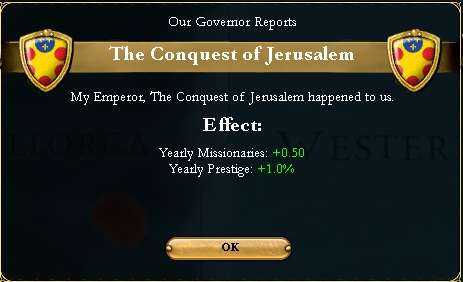
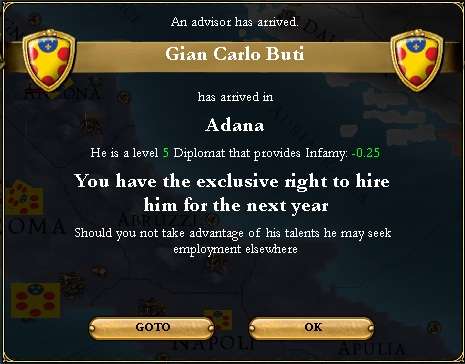

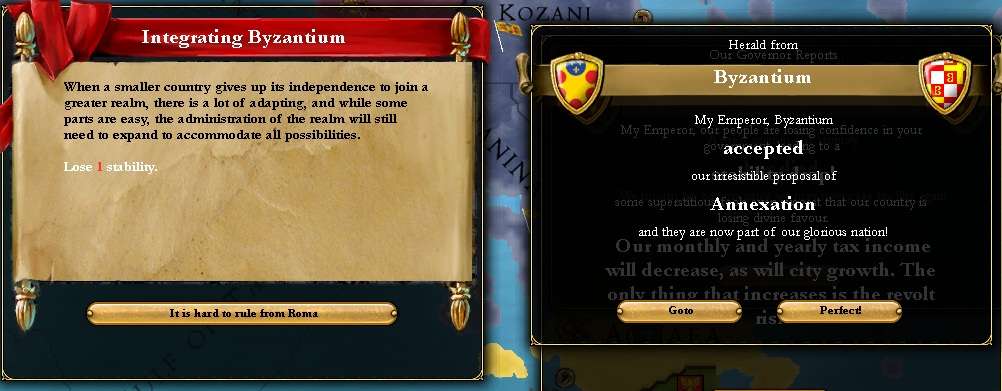

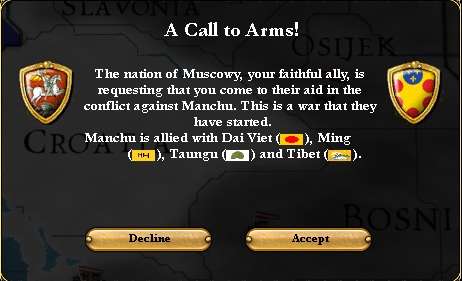
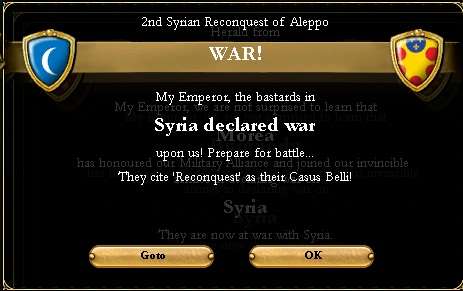


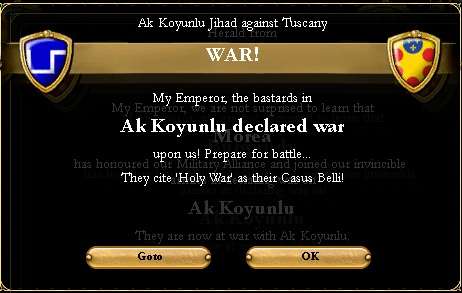
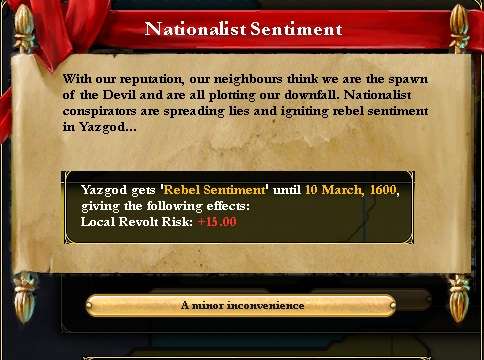
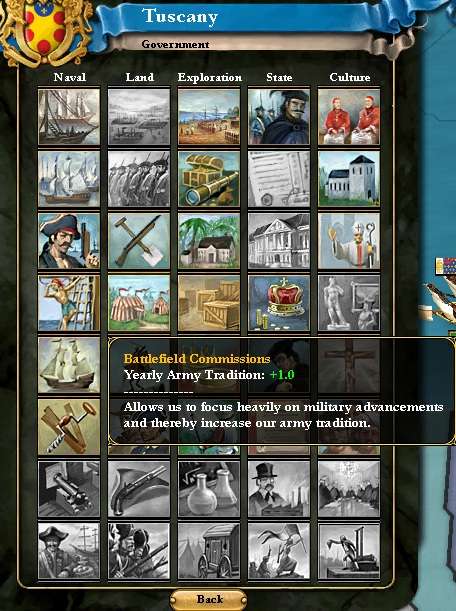

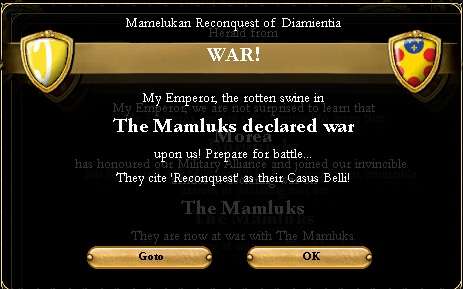
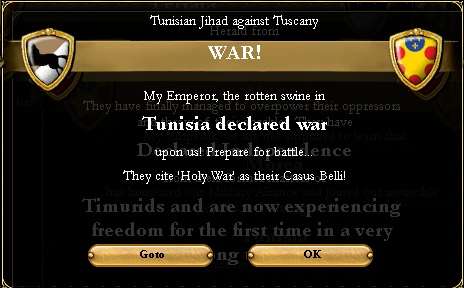

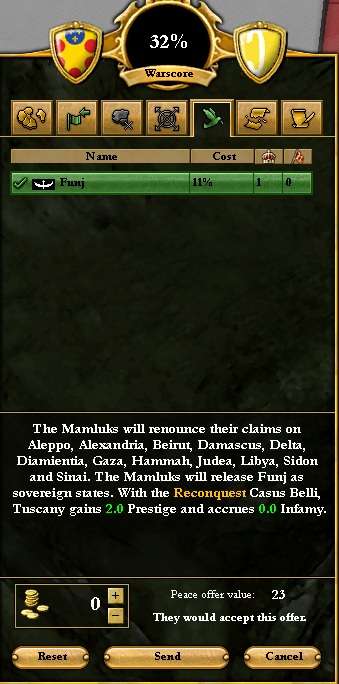
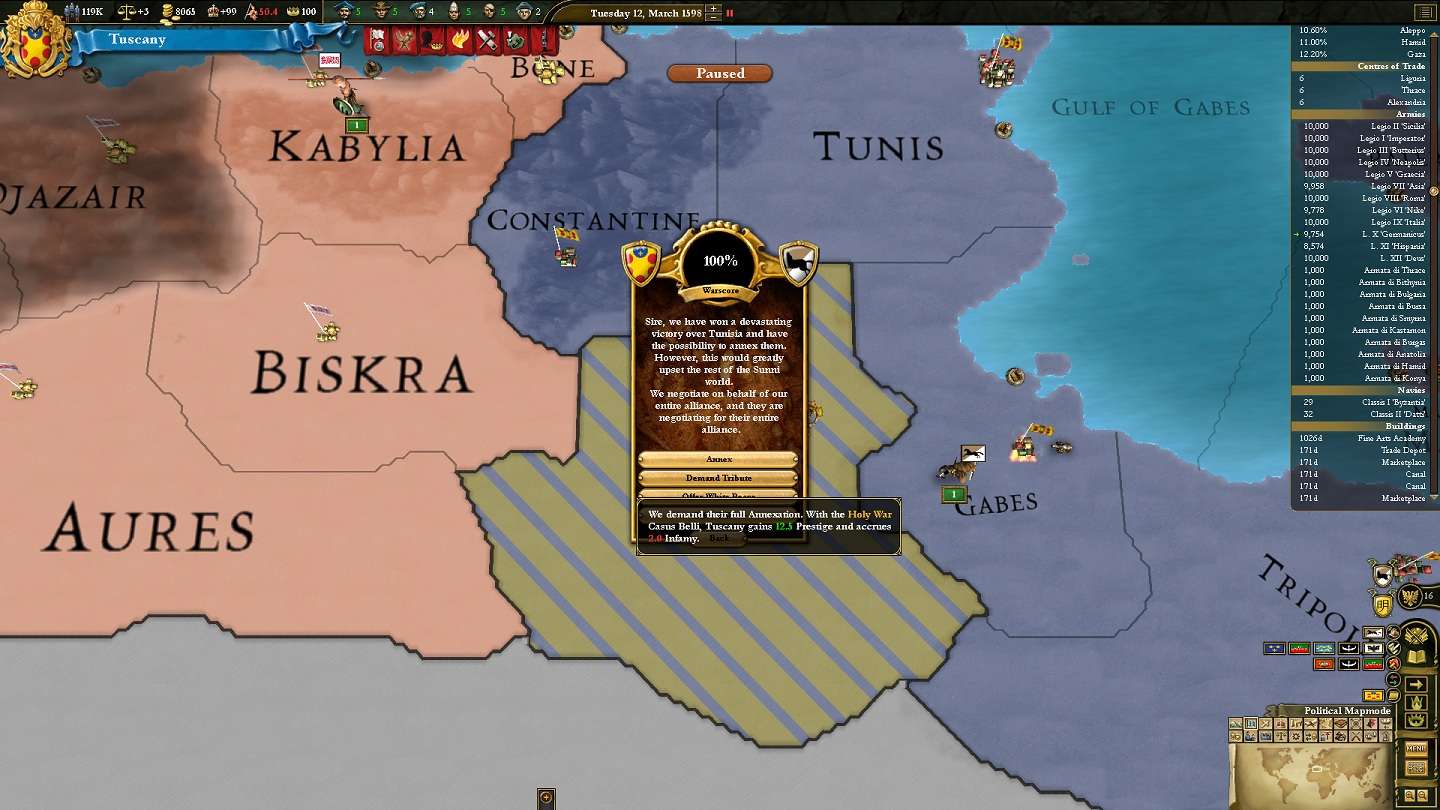
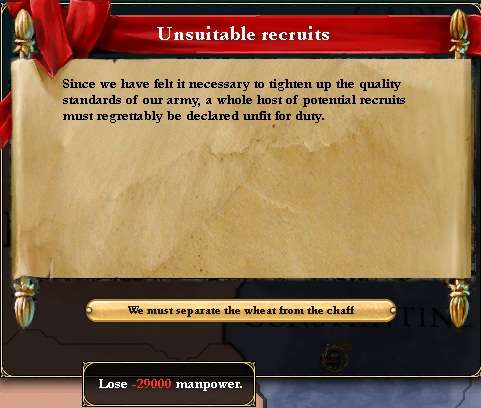

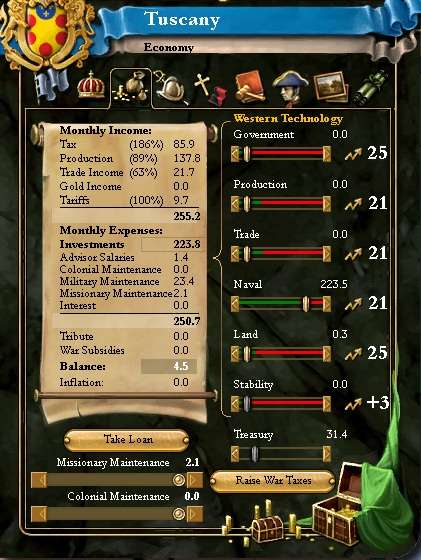

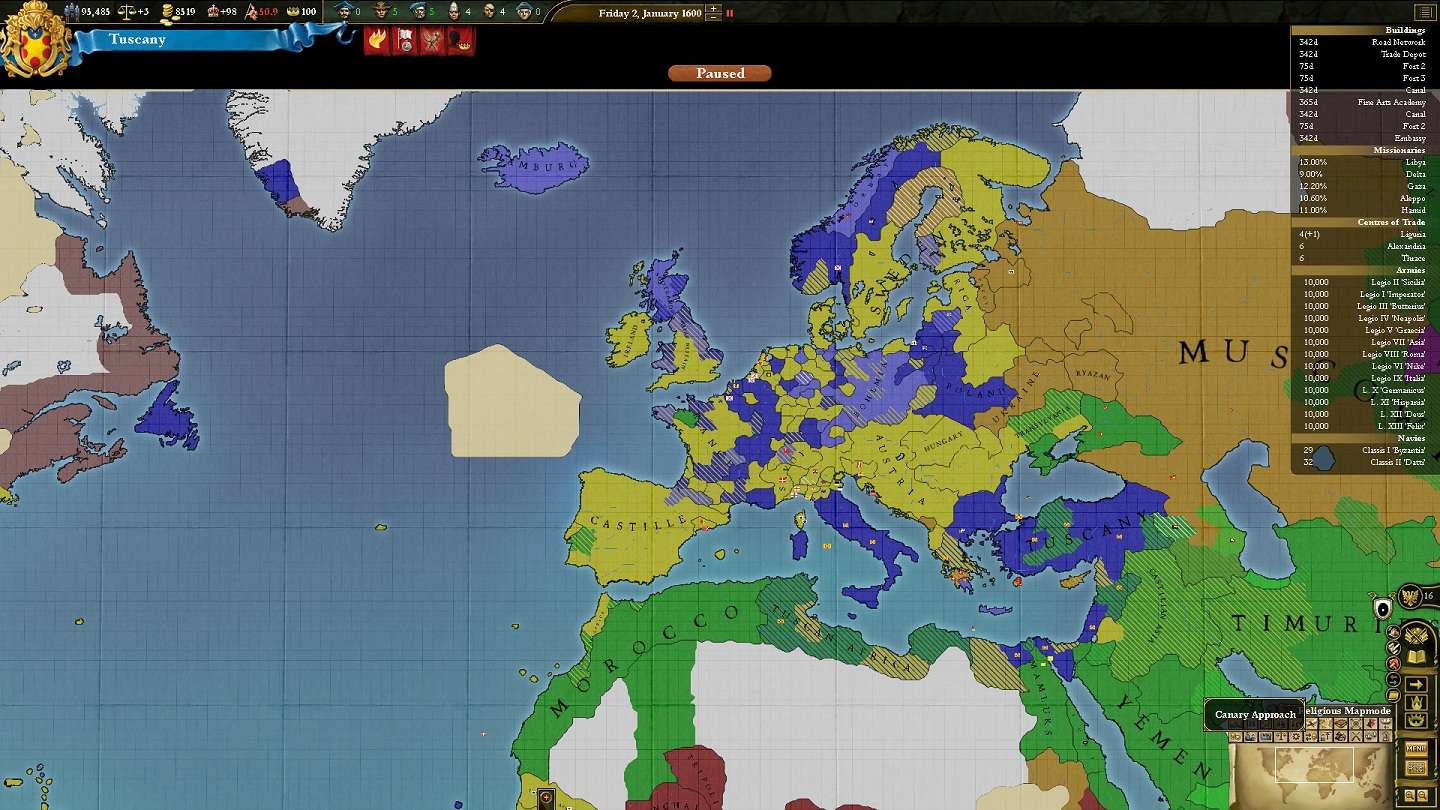

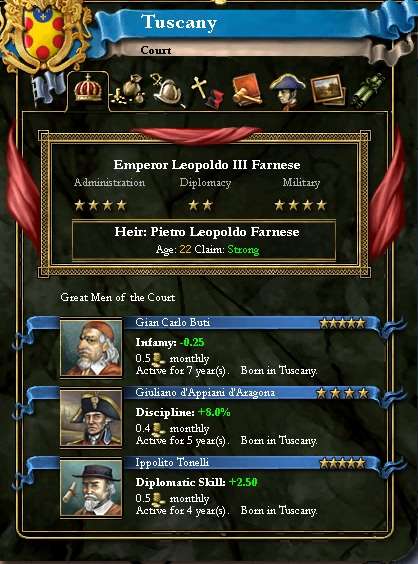
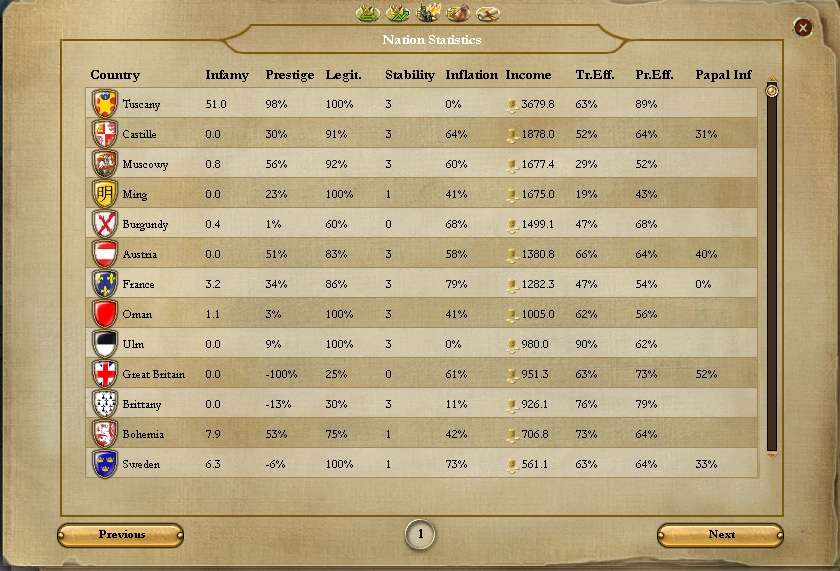
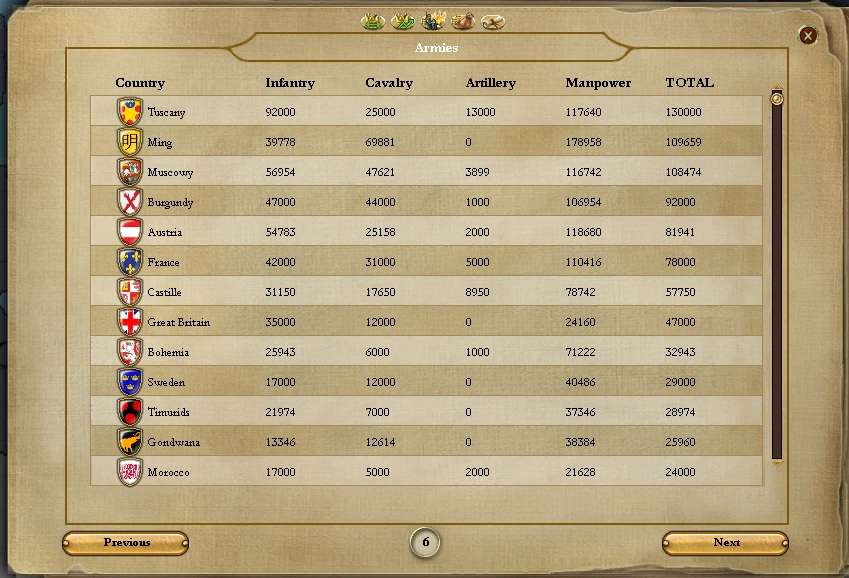
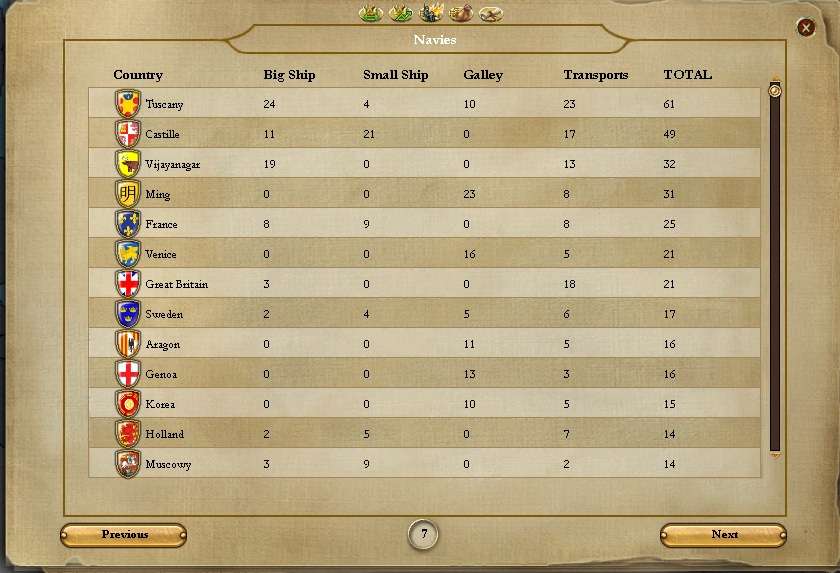
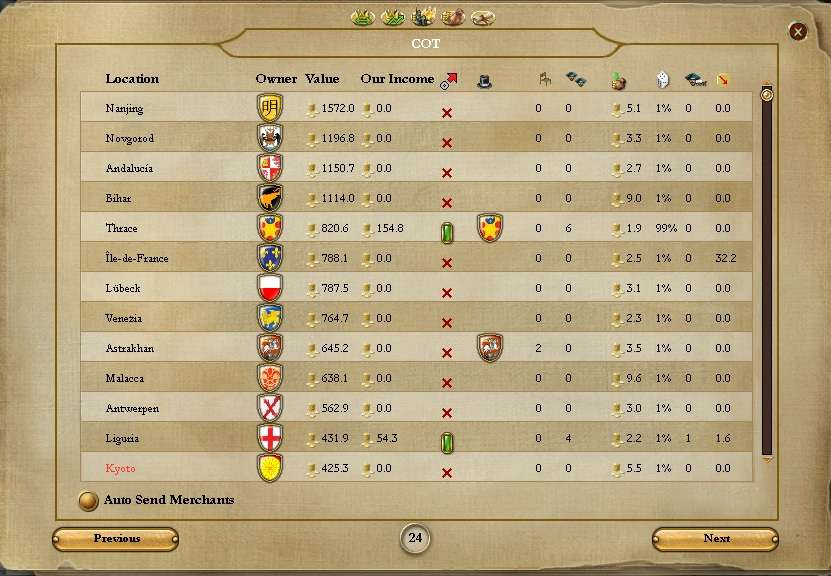
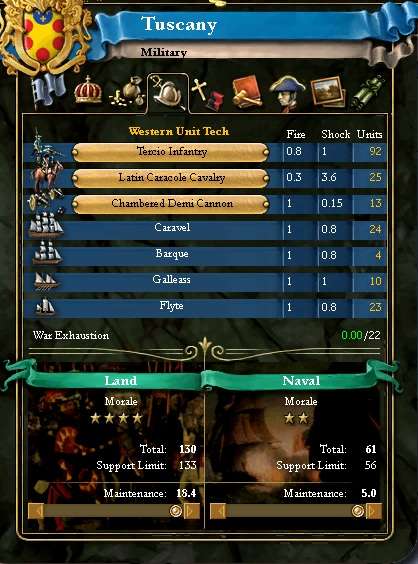
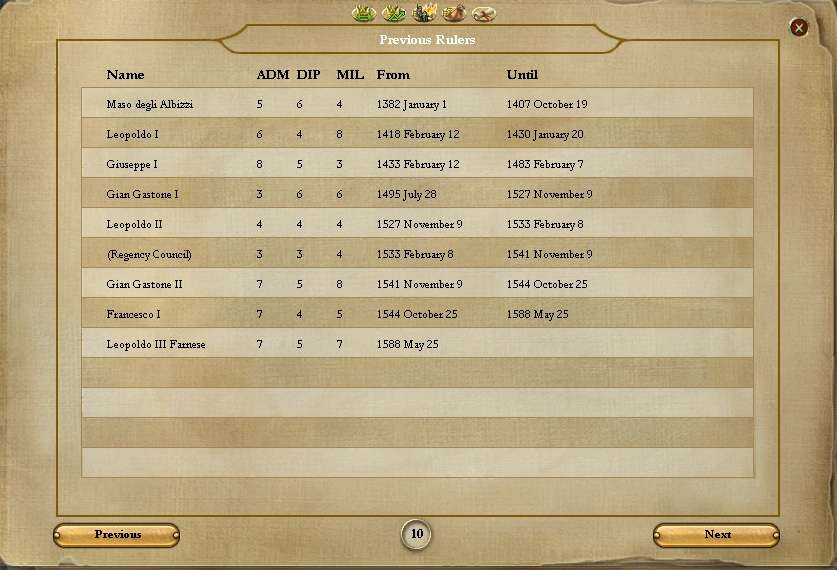
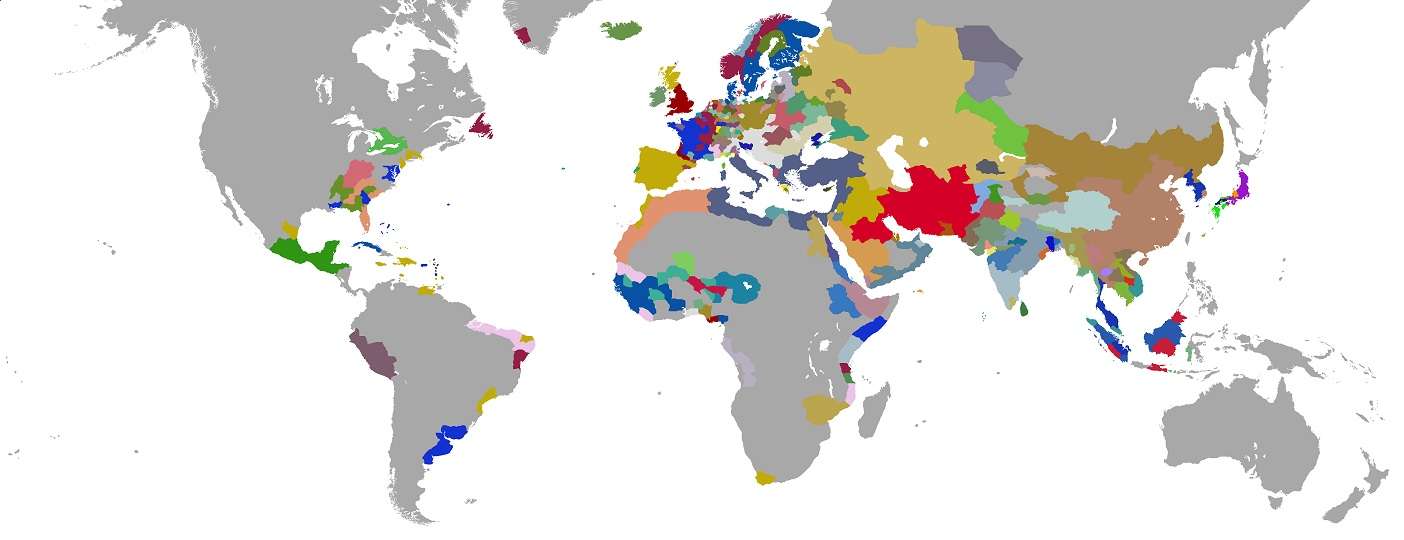
It also looks like you may have a united Russia as your ally at some point. That will definitely help against those pesky Austrians.
